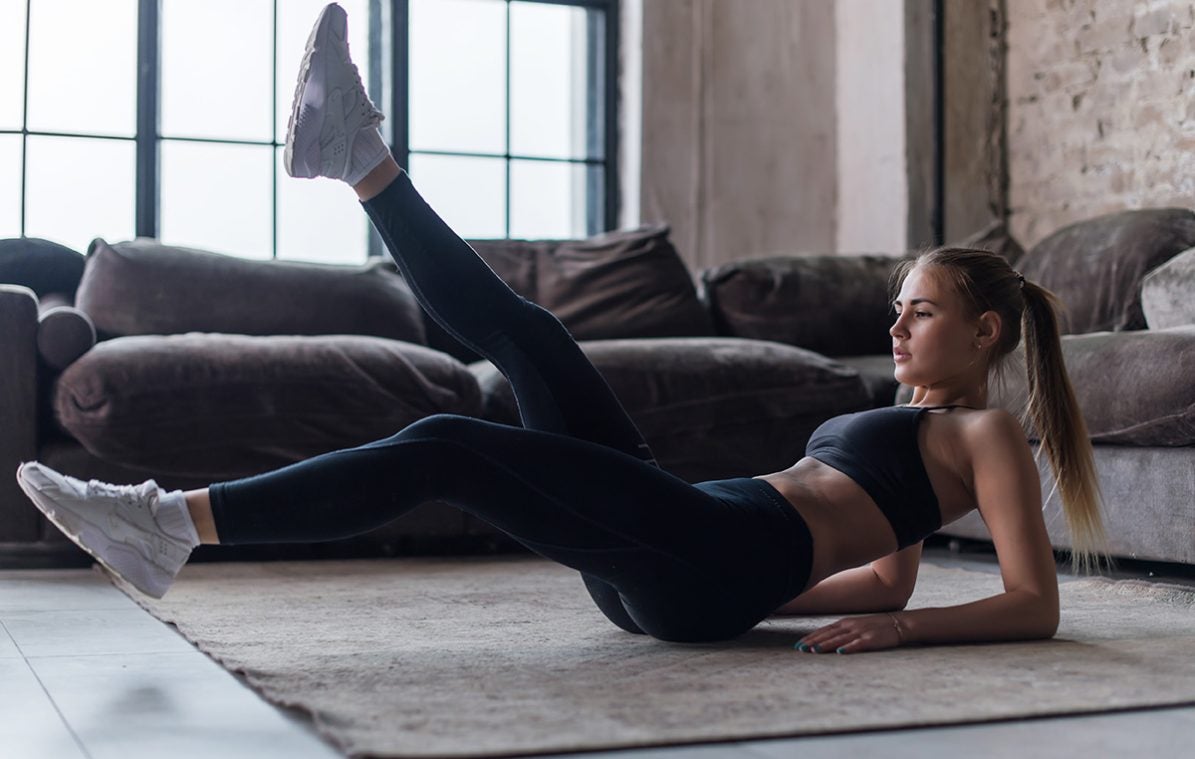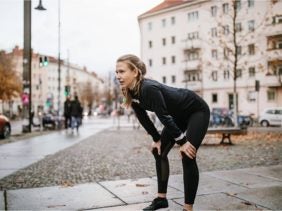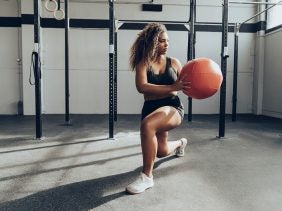Why You’re Probably Burning Fewer Calories Than You Think
 ©Undrey
©Undrey
As a fitness instructor, there’s one question clients ask me all the time after a workout session: How many calories did I just burn? Unfortunately, giving an accurate answer on the spot is impossible; no matter how straightforward the question might sound, the answer is far from simple.
Our Clear Whey has hardly any calories, but a whopping 26 g of protein per serving, and it’s light and refreshing to boot. Just add water, give it a shake, and enjoy. Your muscles will reap the benefit!*
What I can tell you is that how many calories you burn during a workout is highly dependent on the individual, but it tends to be fewer than you might think. Lots of people overestimate the amount of calories that their body burns. But that’s no reason to put you off or for you to quit exercising. While you can’t actively change many factors affecting how much energy you expend through exercise, there’s a lot that you can influence. And remember that just working out is only half the battle when it comes to achieving your fitness targets. I’ll reveal the factors that affect energy consumption during exercise, and how you can harness that knowledge to achieve your goals.
#1 Your weight
A calorie is a physical unit of energy. In other words, the more you weigh, the more energy it takes for you to move your body. So if two people do exactly the same workout, the person who weighs more will burn more calories. According to a study, even the size of your internal organs can have an impact on how many calories you burn during training. What can you take away from all this? If you’re midway through your weight loss journey (i.e. you’ve already lost some weight, but you haven’t yet reached your target), you should adjust your calorie intake to your new weight. If you weigh less, then you need less.
Of course, it’s not just your weight that matters, but also your body composition – which brings us to our next point.
#2 Your muscle percentage
Did you know that your muscles are real calorie busters? They’re constantly burning energy, whether you’re exercising or not. It follows that the higher your muscle percentage, the more energy you expend during exercise. What does that mean for you in practice? If you want to burn more calories during exercise and in day-to-day life, you should focus on strength training. Combining a progressive training program like our 21-day Total Body Challenge with a high-protein diet will kickstart your body’s muscle-building processes. So grab your weights!
Read more: Find out everything you need to know about losing weight with strength training, complete with workouts and recipes.
#3 Your age
As we age, our muscle mass generally decreases. The reasons for this phenomenon are not yet entirely clear. A study by the Ageing Research Review scientific journal argues that as our bodies age, they produce fewer hormones like testosterone, which play an important role in muscle protein synthesis. In turn, this may mean that we have less muscle mass in older age. What can we learn from this? We all age – there’s nothing we can do about that. However, it’s not just your age, but also your lifestyle and habits that really determine how much muscle mass you have. That’s why you should keep doing regular strength training into old age and keep an eye on your diet.
#4 Your level of fitness
Over time, your body adapts to the type of exercise you do. If you work out in exactly the same way for years, without ever stepping things up, you’ll burn fewer calories compared to a complete beginner. This is because your body is now more powerful. Although this is a great thing in itself, it does mean that you require more training stimulus. As part of your exercise regime, make sure that you are progressively upping the hardness over time. See here to find out how it works.
#5 Training intensity
Do you give it your all in every workout? The same workout might require one person to push themselves to the limit, while another can simply coast. This affects the amount of calories burned. You should always listen to your body; performance can fluctuate from day to day due to factors like sleep and stress levels. But if you notice that you have a bit more left in the tank, then go for it. The saying “No pain, no gain” has some truth to it.
A final word of advice: Don’t dwell on exactly how many calories you’re burning during exercise. Your workout shouldn’t be about just that. Exercise releases happy hormones, reduces stress, challenges your muscles, and has a positive effect on your overall health. Besides, there are 24 hours in the day, and your workout takes up just a small part of them. An active lifestyle is the key to burning calories. Try to move around a lot during the day and keep an eye on your food intake. It won’t be long before you start seeing the results.
More things to know from foodspring:
- Calculating your calorie consumption – Here’s how it works!
- Calorie Cheat Sheet: Our (Printable) Guide to Help You Track Calories
- The Most Effective Way to Burn More Calories—Without Even Thinking About It
- Weight Loss Nutrition Plan: Eat the right way to lose weight!
*Proteins help you build and maintain muscle.
Sources for this article
We at foodspring use only high-quality sources, including peer-reviewed studies, to support the facts within our articles. Read our editorial policy to learn more about how we fact-check and keep our content accurate, reliable, and trustworthy.
































